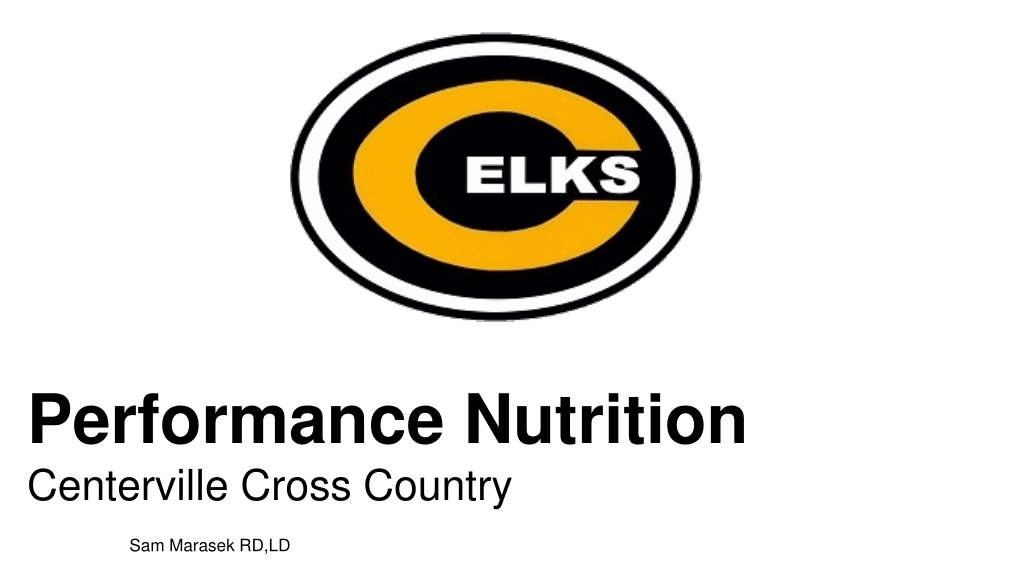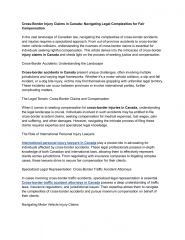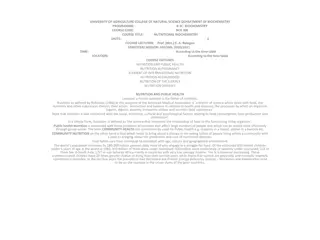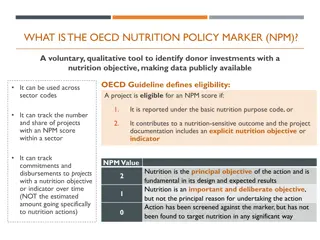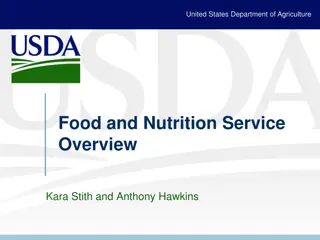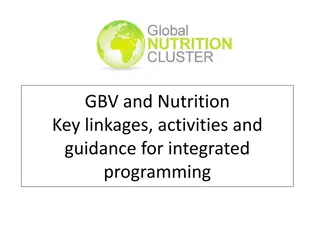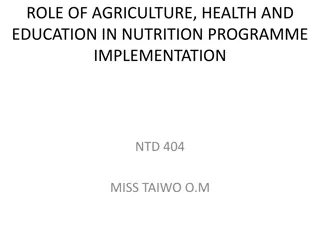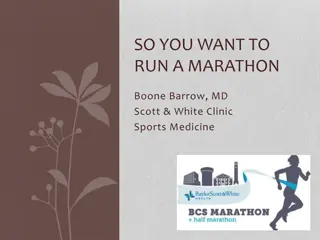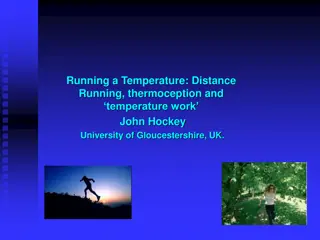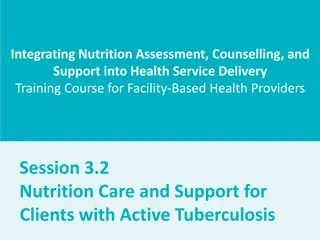Performance Nutrition Tips for Cross Country Runners
Discover essential nutrition principles for optimizing performance in cross country running. Learn about macronutrients such as carbohydrates, proteins, and fats, as well as micronutrients like iron. Get insights on meal planning, myth busting, and running in college. Enhance your knowledge on nutrient importance and achieve peak athletic performance with expert guidance.
Download Presentation

Please find below an Image/Link to download the presentation.
The content on the website is provided AS IS for your information and personal use only. It may not be sold, licensed, or shared on other websites without obtaining consent from the author. Download presentation by click this link. If you encounter any issues during the download, it is possible that the publisher has removed the file from their server.
E N D
Presentation Transcript
Performance Nutrition Centerville Cross Country Sam Marasek RD,LD
Outline I. Nutrition 101 II. Nutrients of importance III.Myth busting IV.Meal planning V. Running in college VI.Q & A
Keywords -CHO: carbohydrates -kcal: Calorie -glycogen: glucose stored in the liver and muscles -glucose: C6H12O6 -1 lb = 2.2 kg -hemoglobin: protein responsible for transporting oxygen through bloodstream, to working muscles -DRI: dietary reference intake -BMR: basal metabolic rate -TUL: tolerable upper limit
Nutrition 101 Macronutrients Carbohydrates (4 kcal/g)(60-65%) -body s preferred source of energy -sugars, starches and fibers -metabolic endpoint is glucose Apply it whole grains, except prior to physical activity Rule of : Consume no more than 100kcal/hr, before an event.
Nutrition 101 Macronutrients Protein (4 kcal/kg) -Structure, function and regulation of the body s tissues -Unlike carbohydrates and fat, protein contains nitrogen -Endurance athletes should aim for 1.2-1.4g/kg of body wt i.e. 120lb runner = 120lb/2.2 = 54.5kg 54.5kg x 1.2g = 65g of protein 54.5kg x 1.4g = 76g of protein Apply it Have a carbohydrate/protein snack post workout, unless you re having a meal w/i the next 90 minutes. Rule of : carb to protein ratio of 4 to 1.
Nutrition 101 Macronutrients Fat (9 kcal/g) -energy source, necessary for nutrient metabolism, hormone synthesis -partial fuel source during low to moderate intensity exercise -saturated fat v. unsaturated fat Apply it consume a healthy fat with foods containing Vitamin A,D,E or K Rule of : at least 10% of total kcal should come from fat
Nutrition 101 Micronutrients: substance needed in trace amounts, for normal growth and development Vitamins: organic compound (contains carbon) Minerals: inorganic compound (no carbon) *Water: category all its own...
Nutrients of Importance Iron -component of hemoglobin, making it instrumental in transporting oxygen throughout the body -Therefore, iron deficiency anemia limits aerobic endurance -Athletes at greater risk of anemia: athletes with energy restricted diet, female athletes with heavy menstrual losses, GI blood loss, heavy sweaters , hemolysis by foot impact -Lab gold standard is serum ferritin Apply it consume vitamin C and iron together Rule of : 8mg/d for men and 18mg/d for women
Nutrients of Importance Calcium -99% is found in bones and teeth; ionic calcium is essential for ion transport across cell membranes -vitamin D aids in the absorption of calcium -DRI: 1300mg ages 9-18 Apply it one 8oz glass of 1% milk contains 305mg of calcium Rule of : 4 servings of dairy/day
Myth Busting Eating too much ______ will make you fat. -kcals consumed>kcal expenditure = wt gain -kcals consumed<kcal expenditure = wt loss http://www.cnn.com/2010/HEALTH/11/08/twinkie.diet.professor/ -variety of factors influence BMR...
Myth Busting It s important to eat pasta the night prior to race day. Research has found that when endurance athletes carb load, fatigue is delayed and their performance improves in events lasting more than 90 minutes. -Eat what works best for you -Focus on the big picture
Myth Busting Energy drinks improve athletic performance. -Most contain blend of caffeine, sugar, B vitamins and taurine -80mg caffeine; TUL 400mg/day -1000mg taurine; TUL 3000mg/day *taurine is an amino acid found primarily in blood, heart and liver
Meal Planning Weight management -Rather than focusing on a number, focus on weight related to performance -Variety of ways to calculate energy needs: Bod Pod, direct calorimetry, indirect calorimetry, kcal/kg, kcal/lb, Mifflin St. Jeor equation, Ireton-Jones equation, Estimated Energy Expenditure Prediction Equations at four physical activity levels
Meal Planning Weight management -Factors affecting BMR: Age, sex, muscle v. fat free mass, body size, hormonal status, thermic effect of food (TEF), physical activity, genetic predisposition -1lb of body mass = energy equivalent of 3500kcal *keep in mind when establishing wt goals
Meal Planning Frosted flakes w/ 2% milk Oatmeal w/ 1% milk Orange juice Low fat yogurt & fresh fruit Turkey/cheese sandwich on white bread cheese Pretzels Fruit snacks Turkey/hummus on wheat bread G2 String Carrots Granola bar Granola bar w/ 8oz water G2 or small banana
Collegiate Running Opportunities -NAIA -NCAA III -NCAA II -NCAA I
Collegiate Running Pros -help pay for school -improve/run faster -travel -make friends -free gear/per diem -access to top notch facilities -life lessons
Collegiate Running Cons -time consuming -no college experience -some professors aren t understanding -requires dedication to be successful -injury -new coach
Resources CPSDA- collegiate and professional sports dietitian association Letsrun.com- forum(s) related to all things running Runnersworld.com- popular running magazine USATF- United States of America Track & Field NCAA- National collegiate athletic association NAIA- National association of intercollegiate athletics Eatright.org- Academy of nutrition and dietetics SCAN- sports, cardiovascular and wellness nutrition ISSN- international society of sports nutrition Redbull.com- nutrition info for product http://sampatty64.wixsite.com/mysite
